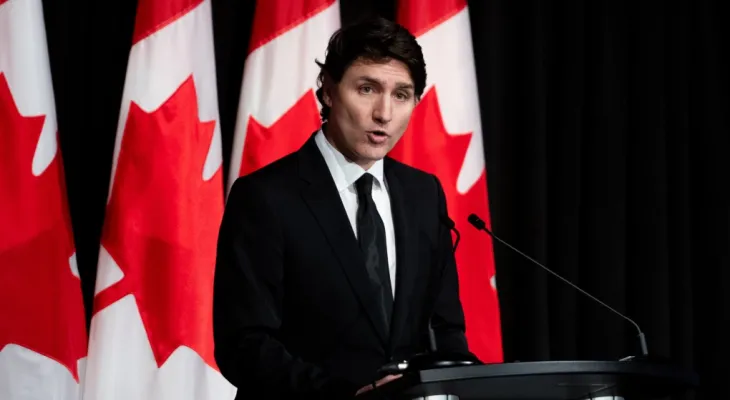Search here
Newspaper
Search here

Arab Canada News
News

Published: April 19, 2024
Canadian Environment Minister Steven Guilbeault said that Canadian banks that refuse to specify carbon rebates by name when making direct deposits are forcing the government to change the law to make them do so.
Guilbeault's stance comes after the federal budget on Tuesday promised to amend the Financial Administration Act so that acceptable government payments for deposit in Canadian banks carry any title the government wants.
Guilbeault said, "The fact that they haven't done this now for many years has pushed us to take this position."
His administration has been battling with banks for nearly two years over how to classify carbon rebates when they are directly deposited into bank accounts.
The first rebate deposits in 2022 were generally categorized very broadly - for example, "federal payments" and "electronic transfer from Canada," meaning that recipients had no idea why they were receiving the money.
Some banks, but not all, have since adjusted their procedures to ensure that bank statements reflect the new name of the program: "Canadian Carbon Rebate."
TD and BMO adopted the "CdaCarbonRebate" identifier requested by the government, which fits within the 15-character limit imposed by some banks.
However, RBC and Scotiabank were unable to make the change in time for the rollout, although both say they intend to update to the new name.
Meanwhile, CIBC still refers to it as "Deposit Canada."
Guilbeault noted that the lack of clear identification is not the only thing causing confusion around carbon pricing, but it is certainly part of the problem.
Guilbeault added, "I think we assumed that since people were receiving this assistance, they knew they were receiving it."
"We discovered over the past few months that this was not the case, partly due to how it was categorized - or should I say - by most financial institutions."
The government has struggled to fully explain carbon pricing and rebates since the policy began in 2019.
This has aided conservatives, who strongly oppose carbon pricing, in their relentless efforts to eliminate it once and for all.
Changing the law will not only affect carbon rebates but will also impact all government deposits, including child benefits, employment insurance, and tax refunds.
Guilbeault dismissed any suggestion that the change would cost banks money.
He said, "You can quote me on this: I find it very hard to believe banks when they say it will cost them money."
"I feel that, as a customer, we should have the right to classify this in the way we feel it should be classified, and it's not the banks' right to decide that."
The spokesperson for the Canadian Bankers Association didn't have much to say about the proposed change.
Maggie Cheung said in a written statement, "Banks in Canada support measures that help build a strong and sustainable Canadian economy."
"We will also review the proposed amendments to the Financial Administration Act when they are introduced, and what the proposed changes to the law will mean for banks and Canadians."
Comments